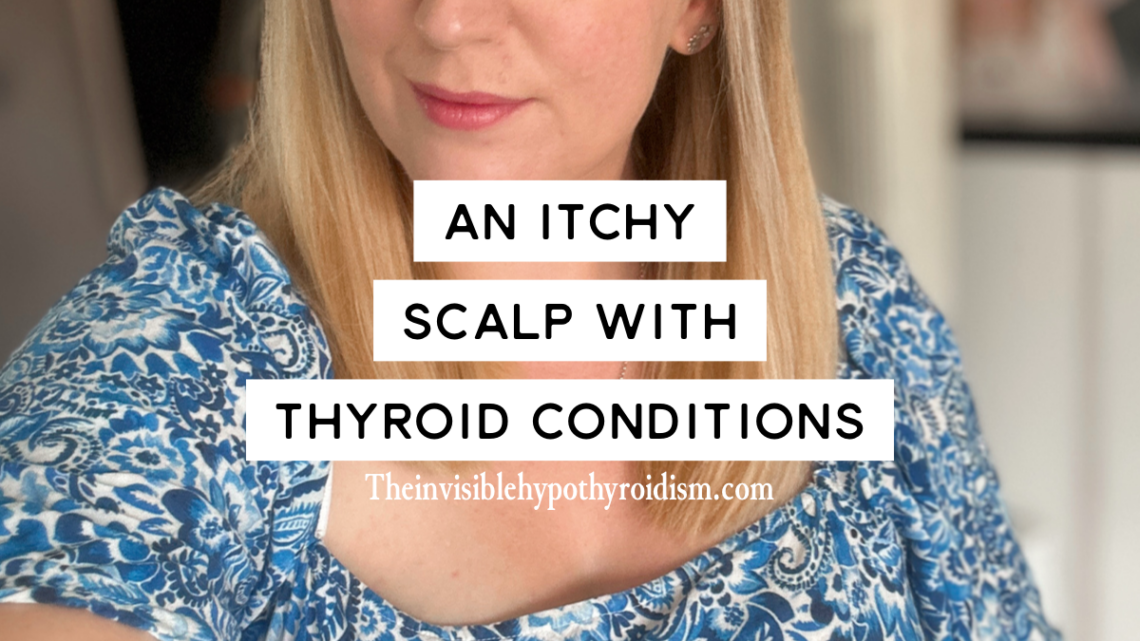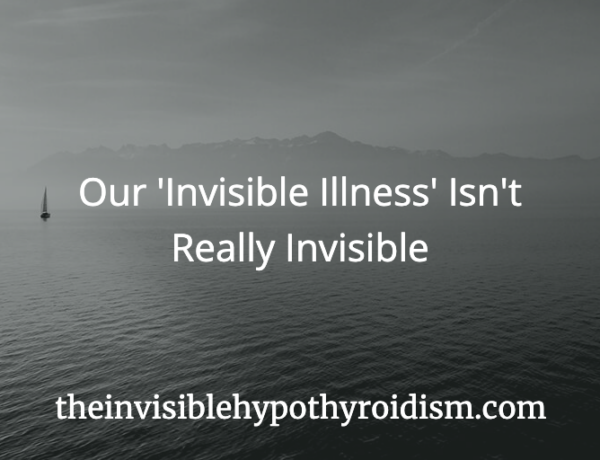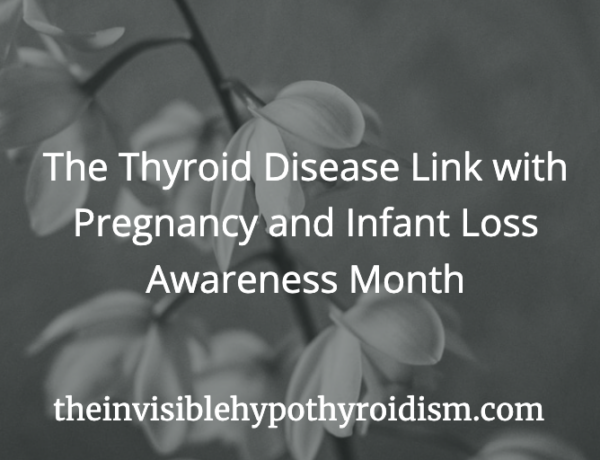If there’s one thyroid symptom I’ve been asked about more times than I can count, yet have never seen discussed before, it’s an itchy scalp.
I have personal experience of this frustrating symptom too. Starting around the time my other thyroid symptoms emerged (fatigue, muscle pains, migraines, hair loss, brain fog etc.), an incredibly itchy scalp was embarrassing me in public, keeping me awake at night and resulting in my scalp being covered in sore areas.
Just what is the thyroid and scalp link?
The Importance of Thyroid Hormone
Since thyroid hormone is needed for every function and cell in the body, effects when it is too high or too low can be far-reaching. Our metabolism, weight, energy levels, fertility, libido, brain function and even skin health can be impacted.
It is well-recognised that hypothyroidism can cause dry, tight skin, and conditions such as eczema and psoriasis often go hand in hand with a thyroid issue. But why?
Causes can range from low thyroid hormone levels (T3 and T4), to low or deficient nutrient levels, a poor diet or unavoidable genetics.
1. Optimal Thyroid Hormone Levels
Optimal thyroid hormone levels are different to just being ‘in range’. Optimal results are the places most thyroid patients say they feel best within the range. They’re more specific.
Optimal thyroid levels are stated to be a TSH below 2 or 2.5, and Free T4 midrange, with a Free T3 in the top quarter of the range. However, these can differ from person to person, but generally, if you have optimal thyroid levels, you shouldn’t be seeing thyroid symptoms linger, unless they’re being caused by something else.
If your doctor won’t test the full thyroid panel (maybe they just run TSH), it is worth knowing that you can order your own full thyroid test online. Find a UK option here and a US option here.
2. An Optimised Diet
The vitamins and minerals we get from food can play a big role in our skin health. Lots of water, healthy fats and nutrient-rich foods can support skin health. Obtaining enough Vitamin D, omega-3 fatty acids, Vitamin B12, Vitamin C and iron from our diet can support healthy skin.
We can obtain these from foods such as: fish, meat, avocados, eggs, berries, spinach and nuts. Consider supplementing Omega-3 if you don’t already.
It can also be worth considering food sensitivities or intolerances when you have itchy, sore skin. You could trial removing common offenders of gluten, dairy, egg etc. and seeing if you notice a difference. I have more info on elimination diets to dial in on symptoms here.
3. Optimal Vitamin and Mineral Levels
Low iron levels can cause skin to feel tight and dry. If you have a dry scalp accompanied by hair loss, then iron may well be the culprit. Read more about iron and thyroid health here.
Low Vitamin D levels can be a contributing factor to poor skin health, too. Many people are low in Vitamin D alongside having hypothyroidism or Hashimoto’s.
Zinc plays a role in cell reproduction and the managing of the glands that attach to your hair follicles, so when your zinc levels are low, these follicles can become weak, causing strands to break off or fall out, or dry skin. Read more about how so many of us with thyroid conditions are deficient in zinc, here.
As with all supplements, it’s not wise to take them unless you know you need them via testing first. You should always let your doctor know about starting new supplements too.
Related Post: Which Supplements Should I Take For My Thyroid?
4. Adrenal Health
Adrenal dysfunction may lead to skin complaints. When cortisol is not following the usual slope shape throughout the day, we can experience symptoms of fatigue, brain fog, skin complaints, accompanied by a general stressed out or burnt out feeling. Finding out how to look after your adrenal health can help with an itchy scalp.
5. Rehydrate From The Outside
We can also hydrate and nourish skin from the outside. Applying a daily scalp moisturiser to the parts of your scalp that are prone to dryness, may help. As may deeply nourishing shampoos and conditioners. I have found that learning about the typical ingredients in hair products and understanding which ones trigger my scalp itching, and then avoiding these, to be super useful too. I avoid sulphates and anything too harsh, for example.
Also be mindful of hairsprays and hair styling products which can exacerbate itching and irritation.
You may also reduce how often you wash your hair. No more frequent than every 2 days is often stated, but for some people, their scalp needs the natural oils to keep it healthy for a up to a week before being washed away and starting afresh.
6. Consider Genetics and Ageing
As we age, our skin may be more prone to fragility, dryness and irritation. Addressing the areas mentioned above may help, but understanding that changes with age are also part of life.
Many of us inherit skin conditions through genetics, such as eczema, although focusing on good gut health may help them. Many people find help through supporting a healthy microbiome, although I did not see any changes in my itchy scalp personally, with protocols for this. You can explore how to improve and support your gu health with my information here.
7. Know When To Use Prescriptions
Sometimes, prescription steroid creams or injections, or heavier moisturisers are a very useful tool. We can also keep in mind that these may be helpful for relief or to help us get on top of a flare.
However, most doctors will recommend avoiding overuse of steroid creams, so a combination of all the tips mentioned here is often useful. Optimise your thyroid and nutrient levels, optimise your diet, drink enough water, avoid ingredients in products that make it worse and use medicines where needed (if needed).
Keeping any skin prone to drying out or itching moisturised, with the daily application of a moisturiser, can go a long way.
8. Calming Hashimoto’s
Reducing thyroid antibodies can also be helpful in reducing thyroid symptoms and skin complaints. How do we reduce antibodies and put Hashimoto’s in to remission? Many find success in removing foods they are reactive too, as well as supporting gut and adrenal health, optimising thyroid and nutrient levels and supplementing Vitamin D and Selenium. How do you treat Hashimoto’s?

See also:
There is also the book Be Your Own Thyroid Advocate: When You’re Sick and Tired of Being Sick and Tired, which builds on this article and discusses how Rachel got her own health and life back on track, when living with hypothyroidism, Hashimoto’s and adrenal dysfunction.




